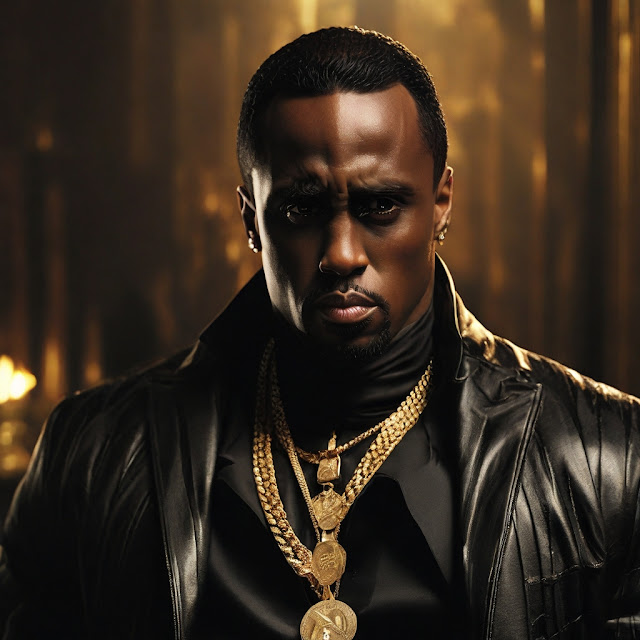The Dark Side of Celebrity: A Woman's Perspective on P. Diddy, Cassie, and the Culture of Abuse
The recent revelations about P. Diddy's alleged abuse of Cassie have sent shockwaves through the entertainment industry. For years, we’ve watched P. Diddy—real name Sean Combs—shine as a music mogul, producer, and entrepreneur. But behind the glamorous façade lies a disturbing reality: accusations of sexual and physical abuse that paint a much darker picture of the man many idolize.
Cassie Ventura, known simply as Cassie, was more than just P. Diddy’s girlfriend; she was an artist under his label, a young woman trying to carve out her space in a notoriously tough industry. The allegations she has brought forward are harrowing: claims of control, violence, and manipulation that spanned years of their relationship. It’s a chilling reminder of how power imbalances in relationships, especially those involving celebrities, can lead to severe abuse.
The Myth of the Perfect Celebrity
This isn't an isolated case. The entertainment industry is rife with stories of abuse, misconduct, and exploitation. We’ve seen it with Harvey Weinstein, R. Kelly, and countless others. These men wield their power and influence to prey on the vulnerable, hiding behind their fame while their victims suffer in silence.
For far too long, society has worshipped celebrities, placing them on pedestals and excusing their behavior simply because they entertain us. We are quick to forgive their transgressions, buying into the myth that their talent justifies their actions. This blind adoration not only enables their misconduct but also silences the victims who fear they won’t be believed.
The Cost of Celebrity Worship
Our culture's obsession with celebrities creates an environment where abusers thrive. We follow their every move, support their projects, and defend them against accusations without a second thought. This devotion sends a dangerous message: that fame and success can absolve even the most heinous actions.
It's time to dismantle this toxic celebrity culture. We must stop idolizing individuals simply because they are famous and start holding them accountable for their actions. Just as we would demand justice in any other context, we must do the same for celebrities. Their status should not grant them immunity from scrutiny or consequences.
Supporting Survivors and Demanding Accountability
Supporting survivors like Cassie requires us to believe them and stand with them. It means questioning the power structures that allow abuse to continue unchecked. It involves a critical examination of the entertainment industry and its many flaws, from inadequate protections for artists to the pervasive silence around abuse.
We must also recognize the role of media in perpetuating this cycle. Sensational headlines often overshadow the real stories of suffering, reducing serious accusations to mere gossip. This trivialization of abuse not only undermines the severity of the claims but also discourages other victims from coming forward.
A Call to Action
So, what can we do? Start by being critical of the celebrities you support. Look beyond the glamour and glitz to understand who they are as individuals. When accusations arise, listen to the victims and demand a thorough investigation. Boycott artists and brands that enable abusers and use your voice to call for change.
Let's foster a culture where talent is appreciated but accountability is paramount. We must create an environment where abuse is not tolerated, regardless of the perpetrator's status. Only then can we begin to dismantle the toxic idolization of celebrities and build a more just and equitable society.
Cassie’s bravery in speaking out is a step toward this change. It’s a call for us all to reflect on our complicity and take action. Because no amount of fame should ever excuse abuse, and no survivor should ever feel silenced by the power of their abuser.
In the end, celebrities are just people—capable of great art and great harm. It's up to us to ensure they are held accountable for both.
Thankful for your presence, Neja










Comments
Post a Comment